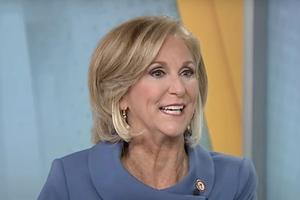The Inside Story of the Whistleblower Who Exposed Pinterest Bias
Eric Cochran’s exclusive interview with the Register

As a software engineer at Pinterest, Eric Cochran’s job was to work on the social-media company’s Android app.
But Cochran’s workplace was filled with a lot more than pure tech talk. At “all-hands” meetings, Cochran heard company officials talk about the need to combat misinformation and conspiracy theories. Cochran agreed with many of the examples that were given.
Then he realized something more was afoot. “I realized they were spending a lot of effort on this; and I was like, ‘Okay, something’s not right,’” Cochran told the Register in an exclusive interview.
Cochran also became curious after reading a story about a Facebook whistleblower who revealed that the company had “de-boosted” the posts of a content creator. He wondered if Pinterest’s actions were consistent with its public policies.
That’s when he started poking around in the backend of Pinterest’s site and “realized how bad it was.” Cochran came across the company’s “Sensitive Terms List,” which included profanity and pornographic terms.
“But then hidden within there I would see terms like ‘Christian Easter’ and ‘Bible verses,’” Cochran said. “That’s where I was like, ‘This isn’t normal.’
He said another alarm bell went off when he saw a note on the company’s internal message board, on Slack. A Pinterest user had complained that Live Action, the online pro-life organization, was on the pornography block list. A Pinterest staffer suggested that it should probably remain there.
When Cochran checked, he noticed that two conservative sites were also on the list, PJ Media and Zero Hedge, which he found “quite surprising.”
“I was like, ‘The public needs to know this,’” Cochran said.
That’s when he went to the investigative news site Project Veritas, which reported on Pinterest’s suppression of Live Action in June. After the site’s initial report, Pinterest removed Live Action from the “block” list. But then Pinterest reversed course after the full report, according to Cochran. Not only did Live Action land back on the list, but its account was banned.
“It appears they doubled down on their stance after the full story came out,” Cochran said.
Cochran was an anonymous source for Project Veritas, but after the story came out, he arrived at work one day to find out that he had been locked out of all of his internal accounts at Pinterest. “That’s when I realized my work at Pinterest was probably over,” Cochran said.
In short order, he was approached by three security guards, who escorted him out after he handed in his badge and laptop.
Cochran, who describes himself as a Calvinist Christian, says he was motivated to expose Pinterest because he is committed to freedom of speech and because of his pro-life views. He is hoping that his story inspires other Big Tech insiders to speak out on how their companies may be suppressing speech on their platforms.
“What I really fear here is that the tech companies see the war for abortion rights right now coming,” he said. “They see that Roe v. Wade’s going to go away and they see the full fight coming to the states. And so they, in lockstep with the Big Media, are all in on cracking down on pro-life speech right now.”
- Keywords:
- eric cochran blows the whistle on pinterest, tech companies against pro-life movement
- lila rose of live action















